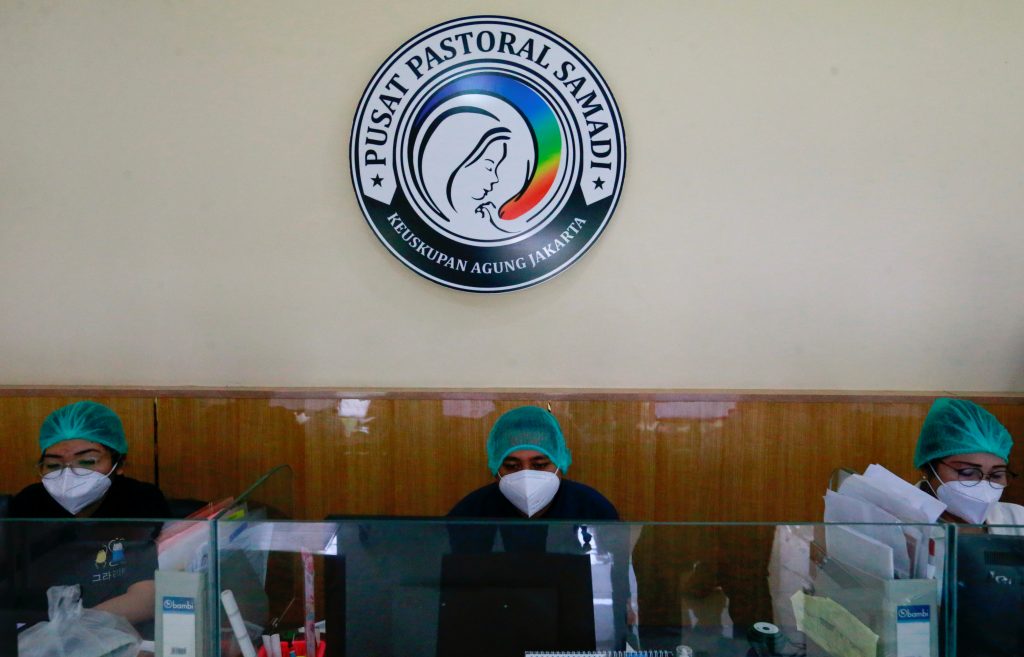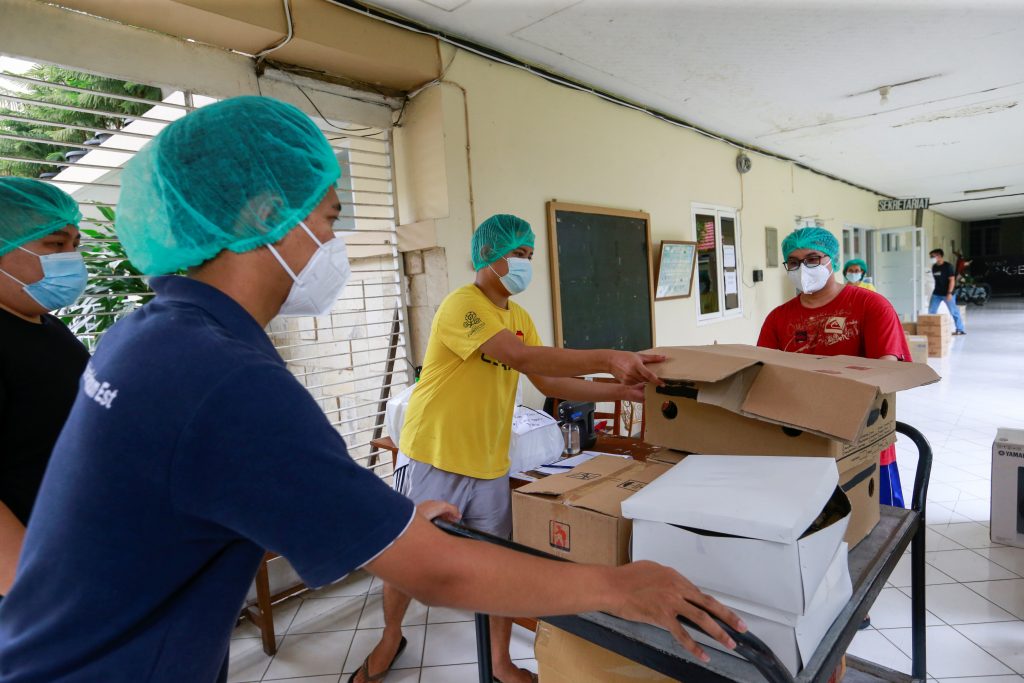The Catholic Church in Indonesia has converted a pastoral center in Jakarta into an isolation ward to care for COVID-19 patients as the country battles a devastating second wave of the pandemic that has overrun hospitals.
Nearly 90 nuns, priests and other carers are looking after about 60 patients in the Samadi center, said Father Yustinus Ardianto, a Catholic priest in charge at the facility.
“For me, the healing process is not just about medicines, but also a comfortable environment,” said Father Yustinus, who has himself recovered from the coronavirus.
Encircling a central garden, there are 75 rooms at Samadi with most of the patients suffering milder COVID-19 symptoms. About 70 people have been treated and returned home, Father Yustinus said.
Funded by the Jakarta Roman Catholic Archdiocese and donations, it accepts people of any faith in a country that is predominantly Muslim but has large Christian, Hindu, Buddhist and other religious minorities.
“We’re brothers and sisters to each other,” he said, adding that patients were mostly from lower-income backgrounds and contributed what they could toward the treatment cost of at least five million rupiah (US$345.18) per patient.
“We accept patients here as long as first there are rooms available, second it is still possible to treat their condition,” added Father Yustinus, who had to anoint and give the last rites to another priest suffering from the coronavirus via Zoom before he succumbed to the disease.
“We have the space, the manpower, and the facilities that can be used in this time of struggle,” said Father Yustinus, director of the pastoral center.


“My heart is moved with empathy as the COVID cases in Jakarta increased exponentially,” said the priest. He said the Church should take an active role in responding to the needs of the time.
“Why isn’t the Church doing something when we have almost everything to help the community?” he said.
The priest said what he is doing is a response to the call of Pope Francis to turn the Church into “a hospital in the war field.”
“The Church must also open its doors wide so that everyone can enter. And this pandemic, is a war field,” said the priest.
Hospitals, particularly on the islands of Java and Bali, have been flooded with patients during the past month, as COVID-19 infection rates and deaths have been driven to record high by the highly infectious Delta variant.
Florentina Suharni Caturwati, a teacher and a patient at Samadi, said authorities should try and find more similar facilities to use as isolation wards during the pandemic.
Father Yustinus said the staff running Samadi knew of the dangers of getting infected themselves.
“It’s the risk of our service,” he said.


On Sunday, Indonesia extended restrictions outside Java island by another week in efforts to control the spread of the coronavirus.
The highest level of restrictions was extended until August 9 for regions outside Java categorized as “Level 4” areas, or areas that have a high level of infections and hospital’s bed occupancy rate, Safrizal Z.A., a senior official at the Home Affairs Ministry, told local media.
Workers employed by non-essential businesses will continue to work from home and shopping malls will remain closed.
A decision on whether the restrictions for Indonesia’s most populated island will be extended is set to be announced on Monday, Safrizal was quoted as saying.
Southeast Asia’s biggest economy suffered one of the worst coronavirus outbreaks in Asia, with the total number of infections reaching 3.44 million by Sunday and more than 95,000 deaths.
The government imposed the country’s mobility control early in July as the number of cases surged due to the spread of the Delta variant. – with reports from Reuters and RVA News


